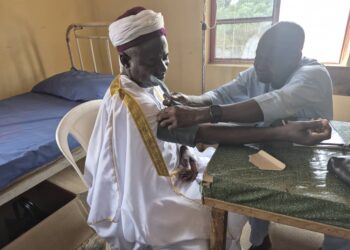Abuja – The Federal Government on Wednesday said that the country has judiciously utilised most of over 10 million short-shelf-life doses of Covid-19 vaccines donated to the country.
The Minister of health, Dr Osagie Ehanire , who disclosed this during a press conference in Abuja explained that the vaccines were used in good time to prevent their expiration.
According to him, the donations of the COVID-19 vaccines saved the country N16.4 billion or more than $40 million in foreign exchange.
He said that the donated COVID-19 vaccines came in through COVAX or AVAT facility, saying that the country always acknowledge and thankfully received such gestures.
However, the Minister, said some of the donated vaccines had residual shelf lives of only few months that left the country very short time , some just weeks, to use them after deduction of time to transport, clear, distribute and deliver to users.
” If such vaccines arrive back-to-back or are many, logistic bottlenecks occasionally arise,” saying that these were reasons for the expiration of some of the donated vaccines.
A report earlier in the day claimed that up to one million COVID-19 vaccines expired in Nigeria last month.
The report by Reuters, described it as one of the biggest single losses of COVID-19 vaccine doses.
However, Ehanire , said that the dilemma of COVID -19 vaccine expiration was not peculiar to Nigeria, but a situation in which many low and medium-income countries find themselves.
He acknowledged that the donation of the vaccines had been helping Nigeria to bridge her critical vaccine supply gap.
The Minister said government now politely decline all vaccine donations with short shelf life or those that cannot be delivered in time.
He disclosed that all expired COVID-19 vaccines have since been withdrawn and handed over to NAFDAC for destruction.
Ehanire declined to give exact number of doses of vaccines that expired but said that long term measure to prevent further loses was for Nigeria to start producing its own vaccines.
He said that vaccines produced locally usually have at least 12 months to expiration, stating that government was already collaborating with stakeholders to fast-track establishment of indigenous vaccine manufacturing firms.(vitalnewsngr.com)


















